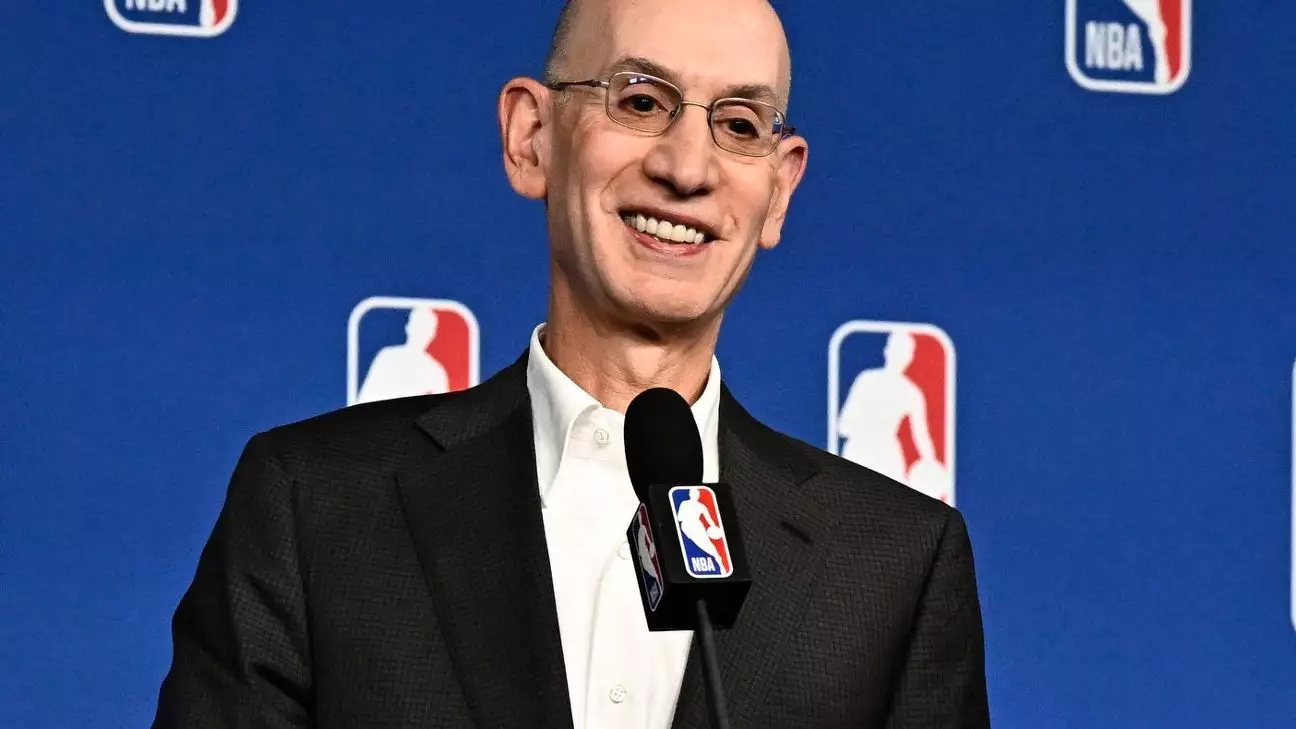The National Basketball Association (NBA) is at a critical juncture, navigating complex issues concerning expansion, ownership changes, and the evolving landscape of sports betting. As the league leaders convene to discuss pressing matters, it becomes evident that the foundations for these transitions are slowly being laid out. Recent statements from NBA Commissioner Adam Silver encapsulate not just the current pulse of the league but also the potential avenues it may explore in the near future.
The topic of league expansion has lingered in the background for several years, with cities like Seattle and Las Vegas frequently surfacing as potential destinations for new teams. At the latest board of governors meeting in New York, it was revealed that while expansion was not a focal point for discussion, it remains an item on the agenda to be addressed this season. Commissioner Silver emphasized that the league is not currently ready to make any final decisions regarding new markets.
This cautious approach is underscored by the need to first finalize more pressing contractual matters, such as the recent collective bargaining agreement and a tentative television deal with major networks. These foundational agreements are seen as prerequisites before engaging in formal discussions about expansion. The formulation of a committee dedicated to exploring the possibilities of new teams is the next significant step that the league intends to undertake, highlighting a methodical rather than an impulsive approach to change.
Among the cities speculated to gain a new franchise, Seattle looms large, given its storied basketball history and the lingering affection for the former Seattle SuperSonics. Silver’s comments regarding Climate Pledge Arena, which has undergone significant renovations, suggest an awareness of the infrastructure necessary for a potential return. While he refrained from offering a definitive response, Silver’s diplomatic acknowledgment of their scrutiny over existing arenas indicates Seattle’s potential as a viable market. The league’s policy of monitoring arenas across the U.S. feeds the speculation that they are keenly aware of the situations across various cities, thus keeping the hope alive for basketball enthusiasts in Seattle.
Ownership changes within the league have added layers of complexity to ongoing discussions. The Minnesota Timberwolves are embroiled in a contentious sale process marked by legal disputes, while the Boston Celtics are also on the verge of a change in their controlling stake. The NBA, according to Silver, is maintaining a hands-off approach in these matters, allowing the legal proceedings to unfold without interference.
This hands-off policy underscores the league’s commitment to transparency and fairness in ownership transitions, yet it raises questions about the impact of these ownership changes on team performance and marketability. Silver’s indication that he no longer favors “stepped” transactions—where ownership moves occur gradually—signifies a desire for a more straightforward approach to ownership, one that could stabilize franchises amid shifting power dynamics.
The dialogue surrounding legalized sports betting in America remains a focal point for Silver, who stands steadfast in advocating for a regulated framework rather than a disparate state-by-state system. Reflecting on a decade-old op-ed where he championed the legalization of sports betting, Silver maintains that as technology evolves, the league must adapt to these changes.
The potential risks associated with sports betting—such as underage gambling and irresponsible wagering—have infiltrated the conversation, prompting calls for vigilance. Silver’s belief in a cohesive regulatory framework highlights a pragmatic understanding of the current complexities, offering a nuanced perspective that acknowledges both the opportunities and dangers inherent in the betting landscape. By leveraging technology and data tracking, the NBA underscores the importance of responsible gambling, ensuring it navigates the waters of this burgeoning industry effectively.
As the NBA looks to the future, several intertwined factors will influence its trajectory. Expansion discussions could lead to a recreation of the league’s geographic map, ownership changes may affect franchises’ stability, and the regulation of sports betting could redefine the league’s interaction with fans and potential revenue streams. Each of these aspects will demand careful planning and execution to ensure they contribute positively to the league’s image and financial viability.
The NBA stands on the brink of significant transformation. Deliberate and cautious strategies are being employed in tackling these multifaceted issues, ensuring that any decision made will usher in long-term benefits for the league and its global fan base. As the current season unfolds, fans and analysts alike will be watching closely to see how these critical matters progress.


Leave a Reply